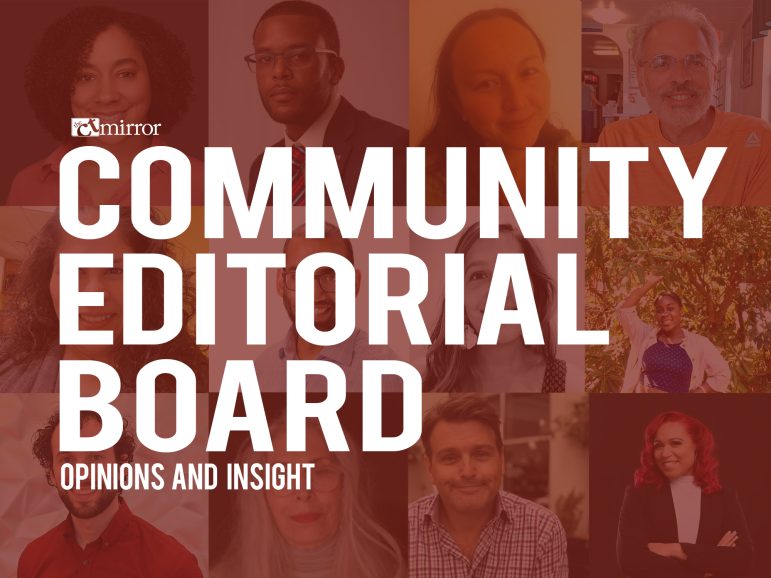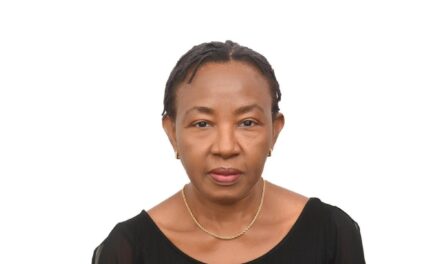Two parents may be better than one, however there are some circumstances when one is better than none.
Our country, our states, cities, towns, communities and homes have been damaged by the destructive virus of absent parents. According to a 2019 Pew Research Center study, “the U.S has the world’s highest rate of children living in single-parent households.” Many families of color have cultivated a normality that has abnormal effects on not only our homes, but also our communities, our towns, our cities, and our nation.
Growing up in three major cities in my lifetime, single parent homes were normalized and expected. I never imagined the impacts it will have on the children, especially those growing up in poverty.
Working with “at-risk” youth for at least a decade has submerged me in countless realities of the difficulties inner city residents of color in poverty deal with on a day-to-day basis. Many unfortunate circumstances are unexplainable but felt. The effects of absent parents have perpetually created pools of inner-city youth that have academic challenges, self-regulation issues, emotional disturbances, social-emotional shortcomings, internalized pain, and a lack of self value. Many of our children are digesting these toxic nutrients daily.
There may be countless reasons that perpetuate this reality. Of course, we have cases of parents becoming widows, or parents that unfortunately become another statistic in the prison-industrial system. According to prisonpolicy.org, “Nearly half (47%) of the approximately 1.25 million people in state prisons are parents to minor children.” Even in our beloved home of Hartford, only 39.3% of families are married couples, compared to 13.9% headed by male, and 46.8% headed by a female. Now if we focus on African American families in inner city communities 64% Of African American children live in a single parent household compared to 42% for Hispanic children, and 24% for Caucasian children.
When it comes to living below the poverty line, the reality of the consequences of living in single parent homes sets in. Children in poverty can’t afford to live without two caregivers – let alone their biological parents.
The highest poverty rates (39%) are for Black families with children which are headed by single Black women. This is significant considering that half (55%) of Black families are headed by single women. And no, this is not a matter of single moms vs single dads. When most of our children are only given half the information, half the care, and half the provision, this impedes an opportunity for individuals to see the whole picture. We should engage in dialogue about systemic psychological, neurological, mental, and emotional deficiencies our children internalize due to mommy and daddy not seeing eye to eye.
That’s not to mention some of the clear and yet frightening realities of homes without a father and the risks that come with it. For example, children without fathers are 10 times more likely to abuse chemical substances, and fatherless children are twice as likely to drop out of high school than children with both parents at home. For decades we’ve acknowledged the power and strength of single mothers. There’s always two sides to an equation, and we can see that a father’s role, regardless of the size, has an important impact on children.
“A woman can’t raise a man.” This statement has been in circulation for as long as I’ve been alive. Even though it has merit, it’s difficult to agree with when there’s data, and testimonies from children that can set the stage for a great debate.
Not only have I mentored countless fatherless youth for over 12 years, I have personal experience of my own with my father working three jobs and being only semi-present; I was able to see the value of both parents, and the challenges a mother can experience carrying such a load on her own. While my father would work three jobs to pay for his child support for my older siblings, my mother had to carry the financial burden involuntarily. With my father out of the home due to work, my mother had to nurture, supervise, and care for my sister and me.
In certain circumstances, as I reflect, I was too much for my mother. Whether it was my tantrums growing up, or my tone, and growing physical stature, my mother’s voice didn’t scare me quite the same as when I was a toddler. In certain instances, luckily enough, my father was able to intervene and manage the situation as he saw best fit, which personally I can say yielded results.
For CT residents, picking up a newly purchased ___ meant driving across state lines, until now.
Do you know the answer? Play this week’s news quiz to find out.
Am I saying my mother’s efforts weren’t sufficient? Of course not, however it’s a different element of recognition and familiarity when a young impressionable man is being guided by the very man that created him. A lot of my students, friends, and family, however, weren’t as fortunate as me to at least have their biological father in the household. And the minority who were raised by only their father had a different outlook on fatherhood. I believe that single fathers do just as well as single mothers.
I’m not one to think in a “perfect world,” however I want to ask not only for empathy and sympathy for the parents dealing with these tough living circumstances of poverty, imprisonment, divorce, and separation, but also for the children who become products of emotional compromise. Children from single parent homes have a greater chance of going to prison and becoming perpetrators of violence. From my experience, I’m willing to bet my last penny that the pain and propensity of violence stems from the home. It stems from a void and emptiness.
Many of the young people I’ve worked with have conveyed the drive of wanting to be an independent man or be who their fathers were and some cases who their fathers weren’t. They yearn for leadership, structure, care, love, and attention — a job that only two parents can deliver. With financial burdens, environmental challenges and day-to-day stress, life can feel a bit much. I want us to recognize that most of our inner-city youth haven’t heard “I love you” from BOTH parents, let alone get to plan family outings and vacations.
My community has to begin to be conscious of having children born out of wedlock. Our children are literally suffering from decisions we should have considered prior to cohabitating. However, it’s never too late for change. I know we have people who grew up in single-parent homes who have made something of themselves. And of course I know these elements are not exclusive to people of color.
All that to say, it’s an outcry that should echo from my pen to your home: no child should ever feel or be “singled out.”
Tyrone Bynum is a member of the Connecticut Mirror’s Community Editorial Board.
Free to Read. Not Free to Produce.
CT Mirror is a nonprofit newsroom. 90% of our revenue is contributed. If you value the story you just read please consider making a donation. You’ll enjoy reading CT Mirror even more knowing you publish it.





